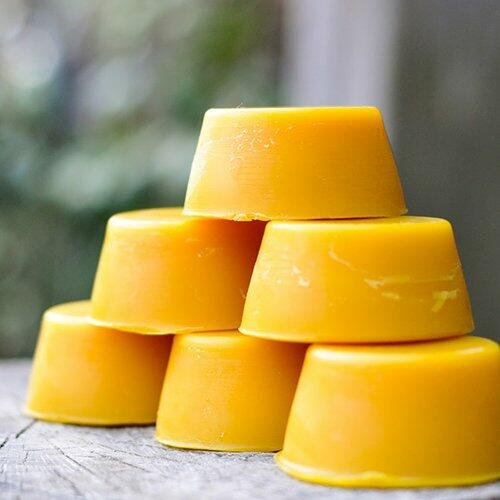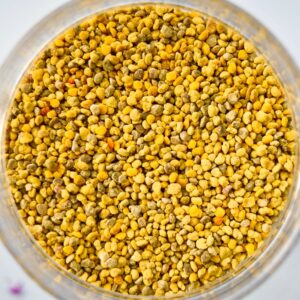Beeswax is a natural, renewable product. This means it is a sustainable alternative to synthetic, mineral oil-based waxes and other products.
Beeswax is a by-product of honey production. Bees produce excess honey in wax honeycombs which can be taken by beekeepers without affecting the colony. Encouraging comb renewal is an important part of colony health. Honey bees prefer to lay their eggs and rear their young in fresh comb. By harvesting excess honey and honeycomb, beekeepers are making space in the hive for this to occur.
Beeswax is used in many skin care products because it provides a protection against irritants while still allowing the skin to breathe. Research has shown that it acts as a better barrier than mineral products such as petroleum jelly. It also offers anti-inflammatory, antibacterial and antiviral benefits making it helpful in treating skin irritation.
As a type of barrier/sealant it has many uses from rust prevention, to waterproofing leather and fabrics, to wood polish.
As a lubricant it is useful for greasing sewing thread as well as nails and screws. It also remedies drawers, windows and doors that are sticking.
It is non-toxic and edible. However, it has no nutritional value because it can’t be digested by humans. It is used in some food preparations (e.g. natural chewing gum) and is used to seal preserving jars and to coat cheeses.
It is organic, mostly consisting of esters of fatty acids and various long-chain alcohols. This chemical makeup means that beeswax is flammable and because it is solid at room temperature it can be used for candle-making.






Reviews
There are no reviews yet.